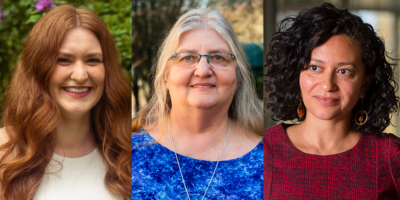Five key recommendations to advance the sexual and reproductive health and rights of women living with HIV

Love Positive Women is an international movement that invites us to celebrate women living with HIV around the globe. This annual event is an opportunity to engage in acts of caring for the women living with HIV in our community, both in private acts and in pushing for systems change.
In Canada, women make up approximately 25% of all people living with HIV. Despite this, women’s voices, priorities, and distinct needs have been underrepresented in the national conversation about HIV. Particularly in the space of sexual and reproductive health and rights, there are few initiatives that focus specifically on women living with HIV. Love Positive Women invites us to show up for women living with HIV, undertaking acts of care that demonstrate that they are loved and valued. In the spirit of this movement, we invite you to show positive women that you care by joining a collaborative effort to confront inequities and support the sexual and reproductive health and rights of women living with HIV in Canada.
In April 2022, our interdisciplinary team of women living with HIV, researchers, community advocates, clinical and social care providers, and policy-makers published a paper titled: “Key recommendations for developing a national action plan to advance the sexual and reproductive health and rights of women living with HIV in Canada“. This publication was the product of a years-long research and national consultation process. The paper outlines five key recommendations that are central in creating enabling environments that support the self-determination, safety and decision-making of women living with HIV. By committing to these recommendations, Canada can demonstrate global leadership in implementing the calls to action highlighted in the World Health Organization’s Consolidated Guideline on Sexual and Reproductive Health and Rights of Women Living with HIV, which is the foundation of this work.
Five key recommendations to advance the sexual and reproductive health and rights of women living with HIV
- Meaningfully engage women living with HIV across research, policy, and practice aimed at advancing sexual and reproductive health and rights by, with, and for all women.
- Centre Indigenous women’s priorities, voices, and perspectives.
- Use language that is actively de-stigmatizing, inclusive, and reflective of women’s strengths and experiences.
- Strengthen Knowledge Translation efforts to support access to and uptake of contemporary sexual and reproductive health and rights information for all stakeholders.
- Catalyse reciprocal relationships between evidence and action such that action is guided by research evidence, and research is guided by what is needed for effective action.
Whether you are a researcher, community advocate, clinician, social service provider, funder or policy-maker, you have a role to play in this work. First, we invite you to reflect on where you can integrate these recommendations or advocate for their implementation within your own spheres of influence. This call extends beyond HIV-specific services, as women living with HIV access health and social services from a variety of spaces. All providers are responsible for ensuring the creation of environments that actively support the sexual and reproductive health of women living with HIV.
Regardless of how you come to this work, there are resources that can support you to take up these recommendations. The authorship team created a website for the key recommendations that includes tools for implementation and advocacy, such as an implementation booklet with examples of learning opportunities and best practices for each recommendation, a slide deck that you can use or adapt to talk about the key recommendations, and a briefing note that you can use for advocating within your own organization. There is also a one-page poster that lists the key recommendations and includes a space for you to sign. You can print and post it in your space to demonstrate your commitment to implementing the recommendations and involving women living with HIV in the work you do and the services you provide.
Finally, you can sign and endorse the key recommendations on the website to show your commitment to supporting women living with HIV and demonstrate to funders and policy-makers that the health and rights of women living with HIV are a national priority. By signing, you will join organizations across the country in a movement to create supportive environments.
It is through community-driven and evidence-based collective action that we will create enabling environments across Canada that make a real difference to the sexual and reproductive health and rights of all women living with HIV. Together, we will make a difference.
Zoë Osborne is a community-based research coordinator at Simon Fraser University with a focus on sexual and reproductive health and rights, as well as gender equity. She holds a master of public health degree from Simon Fraser University and a bachelor’s degree in molecular and cellular biology from Harvard University. She works to practise ongoing allyship with women living with HIV.
Honouring her given names, The One the Eagles Watch Over, NoDe WenDa (Wolf Eyes) and Auntie from the Torres Strait Islanders, Elder Valerie Nicholson is of Mi’kmaq, Haida, Roma and UK Islander descent. Elder Valerie is a Spirited Indigenous Warrior Woman who is an Indigenous Peer Navigator with the Positive Living Society of BC, and was Chair of the Board of the Canadian Aboriginal AIDS Network. She also works in community-based research, and mentors HIV-positive youth as a trainer for the Positive Leadership Development Institute. As a co-investigator on many studies, Elder Valerie helps ensure that research is being done in a good way.
Angela Kaida, PhD, is an epidemiologist and Professor in the Faculty of Health Sciences at Simon Fraser University, where she holds the Canada Research Chair in Global Perspectives on HIV and Sexual and Reproductive Health.
